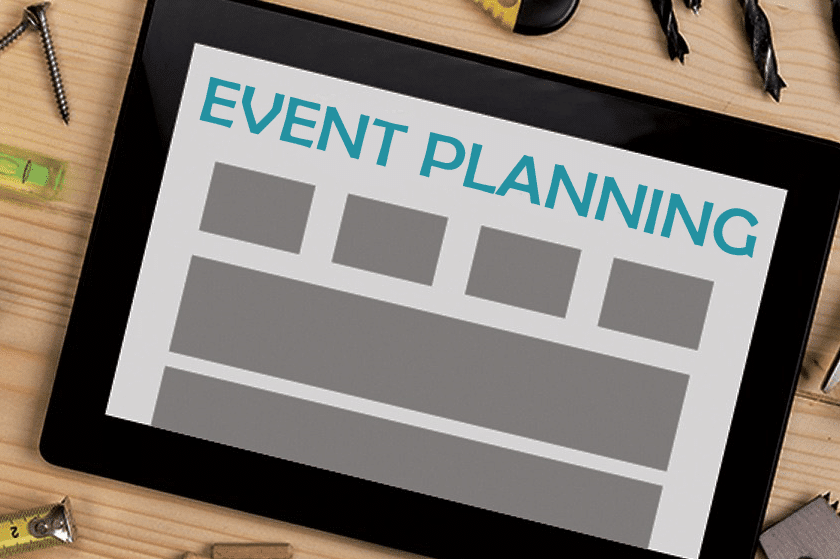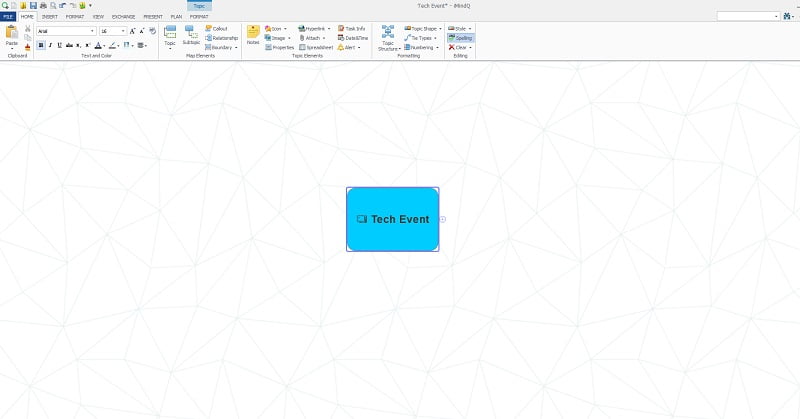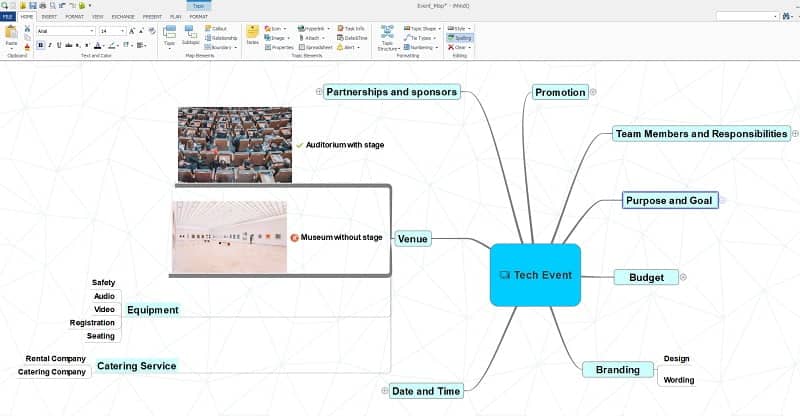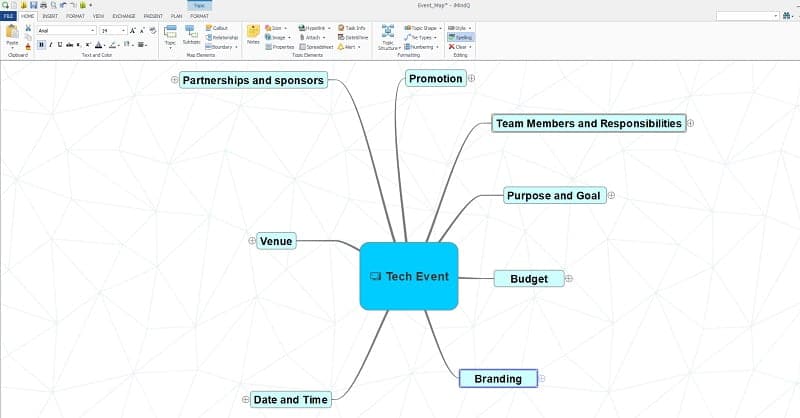Events are everywhere around us. They can be an occasion to educate, inform, recreate, celebrate, display, network, and much more. Organizing an event, be that an exhibition, a fashion show, a sports match, or a press conference, requires an exceptional plan that will include every little detail.
Don’t start organizing your event without planning the essentials. By essentials is meant all the fundamental and indispensable aspects of the process of event management.
Firstly, here is an introduction to the crucial things you should take into consideration when planning and managing any sort of event.
Purpose and goal
Does your event have the purpose to inform or educate? Or you are planning to organize it so that people could come just for fun and networking? Is your goal to increase your brand awareness or generate leads?
Planning an event means you know exactly what is your final goal. Therefore, without identifying your event’s purpose and goal you risk ending up with a failed event. Take your time and reflect on what would you like to be the purpose and the goal of planning and running a specific type of event.
Budget
Every event planner should think of a detailed and accurate budget in order to stay organized. Organizing an event around an estimated budget is quite a challenge. However, estimating all the costs of your event can help you decide which path to take.
Usually, event planners have a predefined budget range, which they need to allocate to different resources. Under resources, you should identify costs that could be directly and indirectly attributed to the event. The more realistically and closely you define the activities tied to your event, the better estimation of the budget.
It is most likely that you will run into situations in which you would have to relocate a part of the budget from one category to another, however, if these are insignificant changes and your total budget is not affected, you are on the right track.
Branding
Once you have determined the goal and purpose of your event, you are ready to think of the branding. It is preferable that the event branding is in line with your company branding. It doesn’t need to be identical, but it should be identifiable.
In other words, if you develop a branding design similar to your company branding you could increase your brand awareness and people will start to recognize you on the market. Further, the branding has to complement your event’s purpose and goal. There are many ideas for event branding, and whichever you choose, you should be careful that is authentic and consistent.
Date and time
Choosing a specific date and hour for your event is an important aspect. How to begin? According to the purpose of your event, you could decide which the most suitable time is.
But when it comes to defining a date – there are a few things you mustn’t forget. Check the monthly calendar to see if there are other events similar to yours, already scheduled to happen on your desired date. If yes, it would be a smart move not to choose the same date, because that way you might risk losing potential visitors.
Venue
The previously determined time and date, and the type of the event you will be organizing will help you to decide what type of venue to search for. However, selecting an appropriate event location requires a detailed overview of a variety of key elements. And the venue you choose will have an impact on every other aspect of your event organization.
Depending on whether you are organizing a seating or standing, formal or informal, day or night, kids’ or adults’ event, the place you choose has to be suitable for your participants’ and visitors’ needs. For example, if you were organizing a technology event where there will be speakers present, you would need a venue with a stage that will be suitable for holding speeches. Also, if this were a big event with a large number of visitors, you should look for a venue that would provide parking for your guests.
Other two important aspects that are closely tied to the event location and that you mustn’t forget are equipment and catering service.
Equipment
A thoroughly planned event means making sure everything is covered so that the participants and guests are having a good experience. In order to do so, you must dedicate some time on event equipment. After deciding on the type, size, and location of your event, you will generally know what kind of equipment you will need.
There are different types of event equipment such as safety, audio, video, registration, seating, etc., that ask for a good organization. Consequently, you will have to determine whether you are going to hire a particular catering company that would be responsible for transporting, setting up and picking up the equipment or you are going to rent it directly from a rental company and take it care for everything by yourself.
Catering service
Food and beverage should be provided mostly for every type of event, be that a conference or seminar, an exhibition or fair, a workshop or training. Firstly, decide how many days your event would last, as well as how many people would be present and then decide on the most suitable type of catering service.
A particular service or a particular establishment, such as a hotel or a restaurant, could provide the catering for your event. When choosing the best catering service, consider all different options depending on the type and amount of food and beverage that would be necessary for your event.
Partnerships and sponsors
After defining your budget, you might want to look for partnerships or sponsorships for your event. There is a common misunderstanding that event partners and sponsors are the same people or organizations; however, there are differences that set these two apart. If the event sponsor usually displays their services and/or products at the particular event, the event partner is completely involved in the planning and organizing process, gives financial support, and takes part ownership of the event.
When looking for sponsorships firstly you should be sure what is that you would want from your sponsors. It is recommended to talk with your potential sponsors to see how they could contribute to your event. Securing a partnership for your event can be beneficial for both sides because it can offer a special event experience.
Promotion
After deciding on the branding of your event, you can start with planning your promotion efforts. Regardless of the event type and scale, it is important to define how, when and through what type of mediums and materials you will promote the event.
When promoting an event you can choose from different possibilities, such as online, print, radio, or television. Depending on what you are trying to achieve, you should consider all forms since each has diverse advantages and disadvantages.
However, when preparing your promoting activities, one thing you shouldn’t forget is defining your tone of voice and the manner in which you would communicate your core idea to your audience across all channels. Similar to your branding concept, here also you should maintain a consistent voice across all channels for promotion.
Team Members and Responsibilities
Behind every successful project stands a team of professionals that make many efforts to deliver their best. Event planning also is a project that requires good organization, collaboration, and communication among team members.
Every detail and activity from which the event depends should be assigned to different project participants in order to avoid confusion and chaos in the management process.
Making the plan and getting started
A lot of options allow us to make a plan and organize an event in an acceptable way. However, not many of those are practical and intuitive enough and offer a wide range of possibilities.
So which option is practical and intuitive enough to allow you to plan and manage your event flawlessly?
Imagine a method that can provide you the chance to plan your event to the tiniest detail. This method also supports keeping on track all team members’ activities and assignments. And in the end, is intuitive enough to offer you a wide range of diverse possibilities that can make the preparation and running of the event smooth.
Every aspect of the list mentioned above, that you have to consider when planning an event can be analyzed in-depth with the support of a mind map. The intuitiveness of the mind mapping tool allows easy planning and organizing events of any type. One example of a mind mapping tool that can help you to better organize an event is iMindQ. It is a simple, practical, intuitive and trusted application that can help event planners to maximize efficiency and to organize and present important information at a glance.
Here is an example of a mind map created for a technology event with iMindQ.
Step 1 – Create the central event topic.
Step 2 – Add sub-topics.
Step 3 – Style and finalize your event mind map.
About the author
Kristina Gjorgievska, a content writer and translator. Eternal inspiration: magical Italy, Jim Morrison’s poetry, Bernardo Bertolucci’s timeless “Stealing Beauty”, the dynamic and meditative Ashtanga Yoga. You can connect with Kristina on LinkedIn.







